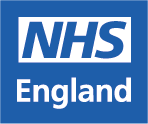Cancer Programme – collecting patient data
Overview
What we do
The NHS Cancer Programme leads projects to improve cancer services in England in line with the NHS Long Term Plan ambitions.
This is done by funding and implementing new cancer services, pathways, tests and treatments.
NHS England collects information (data) from new cancer services (sometimes called pilots) on people who use them. This is called patient level data. NHS England uses this information to monitor and make improvements to services for patients, for example diagnosing more cancers earlier and providing more treatment options for patients to give them a better chance of surviving cancer.
How will my information (data) from cancer services be used?
Your information will be used by NHS England for monitoring and evaluation. This is called a secondary purpose for using health data. Your data will be pseudonymised before it is made available to any NHS England analyst for analysis. This is a process to remove personal identifiers from the data, for example, replacing your NHS number with random values. This means you will not be able to be identified from the information that is made available for analysis.
There may be times when NHS England asks external research organisations to evaluate their Cancer Programme Pilots. In these cases, these organisations would be able to access your pseudonymised data following a Data Access Request Service (DARS) request. This is a formal requesting procedure that ensures that patient level data is only provisioned when there is a legal basis to do so and that it is through a Secure Data Environment.
Secure Data Environments have the highest standards of privacy and security of NHS health and social care data when used for research and analysis. They only allow approved users to access and analyse pseudonymised data. They make sure that no patient level data leaves the environment (outside of NHS England).
What are the benefits?
Using this way of working allows NHS England to diagnose cancer earlier and provide more treatment options to give people a better chance of surviving cancer, through:
- Checking and making sure cancer services are working as well as they should be.
- Performing flexible and detailed analysis of cancer services and outcomes for patients.
- Linking data from cancer services with other data in health records to give a better understanding of joined-up health and social care activity and outcomes across the population.
- Reduce health inequalities.
- Monitoring improvements to cancer services and outcomes for patients.
Why your views matter
NHS England would like you to take part in this consultation to help us understand how the public feel about how their data is used.
We do not require any information that will identify you as part of this survey.
The more people who take part in this consultation, the more useful the results will be to help us understand how well-informed the public feel about how their data is used.
NHS England will use your feedback to try to address any concerns raised.
Responses to this survey are anonymous. NHS England will not receive any personal information about you.
Additional information:
- Cancer Programme public consultation additional information - PDF
- Cancer Programme public consultation additional information - accessible web content
Audiences
- All interested stakeholders
Interests
- Cancer
